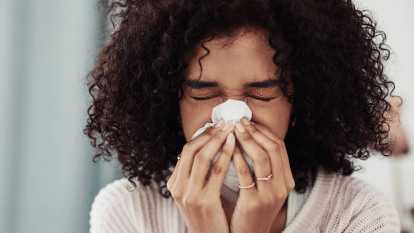How Worried Should We Be About ‘Nightmare Bacteria’?

You may have heard about antibiotic-resistant bacteria in passing before, but lately, it’s been at the forefront of health news. It’s for a good reason: Last year, nationwide tests found 221 instances of germs resistant to all or most antibiotics tested on them, according to the Centers for Disease Control and Prevention (CDC). Unfortunately, these bugs are exactly as bad as they sound, but (thankfully!) there is some good news we can keep in mind.
“Unusual resistance germs, which are resistant to all or most antibiotics tested and are uncommon or carry special resistance genes, are constantly developing and spreading,” said the CDC team. “Lab tests uncovered unusual resistance more than 200 times in 2017 in ‘nightmare bacteria’ alone.”
What makes these “nightmare bacteria” so nightmarish is that they’re either nearly or fully untreatable. Even worse? Not all people affected by these antibiotic-resistant bacteria have symptoms; so some individuals might be “silent carriers” of the bugs without even realizing it. Sadly, more than 23,000 Americans die every year from infections caused by germs resistant to antibiotics.
Despite the scariness of these bacteria, there is some good news that has come out of the report. Researchers are working around the clock right now to try to develop other antibiotics or find alternate ways of treating bacteria. In addition, they’re also getting the word out to hospitals and other health departments to stay on top of the problem in patients as soon as they spot it — and it seems like most health professionals are paying very close attention.
For instance, thanks to the rapid response of one Tennessee health department to one patient with an antibiotic-resistant germ, the facility was able to do infection control assessments and colonization screenings within 48 hours. No spread of the germ was found afterward. We hope other health departments will follow this excellent example of how acting quickly can stop problems from spreading before they even start.
As for the rest of us, the CDC is advising everyone to inform their health care providers if they recently received healthcare in another country or facility. The organization also recommends that everyone should have an up-to-date conversation with their health care providers about preventing infections, taking good care of chronic conditions, and getting recommended vaccines. And of course, it’s always best to practice good hygiene habits by washing hands, taking care of any chronic conditions, and keeping cuts — no matter how small — clean until they’re healed.
h/t Science Alert
More from FIRST
Babies Given Antibiotics and Antacids More Likely to Have Allergies as Adults, Study Finds
How Can You Protect Yourself From Ticks This Summer? We Asked the Experts













